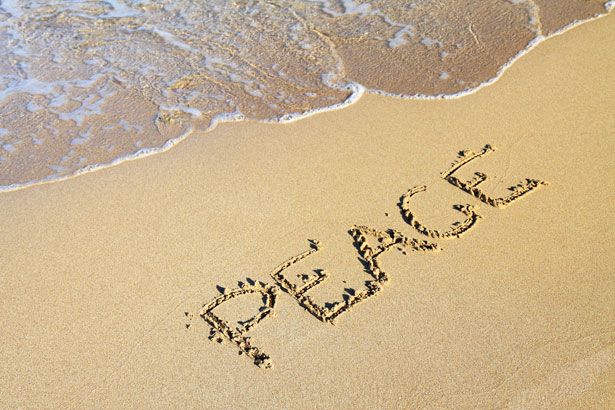Those who practice yoga naturally aspire to living a life of unity. Samadhi (enlightenment) is a common goal, along with “finding” their true self and realizing that Self to be non-separate from all they might ordinarily see as “other.” Acting unselfishly for the good of others is the cornerstone of an enlightened life. There are many ways to describe one’s individual actions as they relate to other’s needs and/or sufferings. To clarify: here we will explore the difference between sympathy, empathy and compassion and how each of them might relate to your life choices…
Sympathy – feelings of pity or sorrow for someone else's misfortune.
Sympathy is basically feeling sorry for another’s hurt or pain. Generally there is some emotional separation with sympathy, in other words, you are not directly experiencing the pain yourself, but sometimes sympathy can assume the form of pity, and that is where some caution should be exercised. Pity is a negative emotion that can tend to dehumanize and belittle. Most people who are in difficulty, suffering or facing other challenges will despise being “pitied.” For a deeper understanding, empathy is needed.
Empathy – “Feeling into” (walking in another’s shoes)
The feeling of empathy takes things a bit deeper; it’s the capacity to experience for yourself some of the pain that another person is experiencing. Empathy acknowledges our shared human experience and the recognition that we all have the ability to feel grief, loss, pain, fear, etc. Empathy is a vicarious experience; it’s allowing yourself to become tuned into another person’s actual emotional experience. This takes courage, and if you’ve ever experienced real empathy from another when you’ve been suffering, you know what a precious gift it can be.
Compassion – love takes action (empathy + a strong desire to alleviate the suffering)
If we agree that empathy is the capacity to truly experience the feelings of pain that another person is feeling; then compassion is to translate and convert that feeling into helpful action. True compassion doesn’t discriminate, it reaches out to all people, regardless of whether they are friends or not, and furthermore, it extends to all living creatures.
To summarize: Sympathy (or pity) may cause you to get pulled into a ditch where some unfortunate one has fallen, empathy will allow you to feel what the fallen one is feeling without getting stuck in the same dilemma, and compassion will enable you to bring action to empathy by offering a helping hand and lifting that one up.
Living in a compassionate way can be learned and with practice it will become second-nature. Changing any habit takes persistence and practice but it is achievable through the right methods. Many of the wisest people in this world have testified that the giving of one’s self to help others is the source of great peace and satisfaction, and there are many other benefits to be gained as well.
Learning and regularly practicing meditation can greatly help develop qualities of compassion. Meditation is a great way to access your own inner wise being, which is inherent in your subconscious, allowing you to move from living a self-based life to living a life where others are not separate from you. Meditation will help you become a person of true compassion, and lead to life that is deeply fulfilling in ways you may never have imagined.

Rae Indigo is ERYT 500
 As humans our bodies have preconditioned responses to threats and/or challenges, whether they’re real or perceived, anything from the attack of a tiger to hostile words from a coworker tends to prompt the “fight or flight” reaction. This automatic response triggers the production and release of adrenaline and cortisol into our bloodstreams. Unless we are confronted with an actual physical attack (in which case we need to fight or run away), the fight or flight response can itself be physically harmful and literally cause pain and suffering. If this response arises without real situations, we tend to succumb to a series of conditioned or habitual responses. In our relationships with each other, we may see the other person as our enemy and fail to recognize that they may be facing their own set of fears and challenges.
As humans our bodies have preconditioned responses to threats and/or challenges, whether they’re real or perceived, anything from the attack of a tiger to hostile words from a coworker tends to prompt the “fight or flight” reaction. This automatic response triggers the production and release of adrenaline and cortisol into our bloodstreams. Unless we are confronted with an actual physical attack (in which case we need to fight or run away), the fight or flight response can itself be physically harmful and literally cause pain and suffering. If this response arises without real situations, we tend to succumb to a series of conditioned or habitual responses. In our relationships with each other, we may see the other person as our enemy and fail to recognize that they may be facing their own set of fears and challenges.